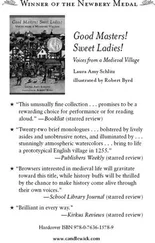Laura Schlitz - The Hero Schliemann
Здесь есть возможность читать онлайн «Laura Schlitz - The Hero Schliemann» весь текст электронной книги совершенно бесплатно (целиком полную версию без сокращений). В некоторых случаях можно слушать аудио, скачать через торрент в формате fb2 и присутствует краткое содержание. Год выпуска: 2006, ISBN: 2006, Издательство: Candlewick Press, Жанр: Старинная литература, на английском языке. Описание произведения, (предисловие) а так же отзывы посетителей доступны на портале библиотеки ЛибКат.
- Название:The Hero Schliemann
- Автор:
- Издательство:Candlewick Press
- Жанр:
- Год:2006
- ISBN:978-0-7636-6567-8
- Рейтинг книги:5 / 5. Голосов: 1
-
Избранное:Добавить в избранное
- Отзывы:
-
Ваша оценка:
- 100
- 1
- 2
- 3
- 4
- 5
The Hero Schliemann: краткое содержание, описание и аннотация
Предлагаем к чтению аннотацию, описание, краткое содержание или предисловие (зависит от того, что написал сам автор книги «The Hero Schliemann»). Если вы не нашли необходимую информацию о книге — напишите в комментариях, мы постараемся отыскать её.
The Hero Schliemann — читать онлайн бесплатно полную книгу (весь текст) целиком
Ниже представлен текст книги, разбитый по страницам. Система сохранения места последней прочитанной страницы, позволяет с удобством читать онлайн бесплатно книгу «The Hero Schliemann», без необходимости каждый раз заново искать на чём Вы остановились. Поставьте закладку, и сможете в любой момент перейти на страницу, на которой закончили чтение.
Интервал:
Закладка:
His journey home was catastrophic. When Heinrich reached the Atlantic coast of Panama, he learned that his ship had just left for Europe. There would be no other ship for weeks to come. He was stranded in a place where there was no shelter and no food.
It rained without stopping for two weeks. The land teemed with scorpions and rattlesnakes. Heinrich camped under the palm trees with 2,500 other wretched travelers. No one had dry clothes, and there was no way to kindle a fire. A few resourceful souls were able to kill monkeys, iguanas, and turtles, which had to be eaten raw. Hundreds of people died. The mosquitoes gnawed at the survivors, making sleep impossible. Heinrich wrote, “I lay more dead than alive. . . . In this horrible situation all human feeling forsook us. . . . Crimes were perpetuated among us; crimes so terrible! that . . . I cannot think of it without cold and trembling horror.”
He never explained what the crimes were. But once again, Heinrich survived. He was alive and kicking when the next ship came. He paid for a cabin onboard without haggling over the price, gulped down beef tea, and slept in dry bedclothes for the first time in two weeks. Once again, luck had sustained him, and he sailed home to St. Petersburg with a fortune and no injury worse than a wounded leg.


When Heinrich returned to Russia, he began to think seriously about marriage. He proposed to several women, all of whom rejected him. At last his choice fell on Ekaterina Petrovna Lyshina, the daughter of a business acquaintance. Heinrich had proposed to Ekaterina before his trip to America, but she had refused him. Heinrich was not attractive to women, with his small frame and round head. During his journey, he had grown no better-looking; he had, however, become very rich. Ekaterina accepted the millionaire’s proposal, and they were married.
It was a bitterly unhappy marriage. Heinrich married for love. Ekaterina married for money. Neither of them got what they wanted. Heinrich nagged and scolded his wife over every penny she spent. Ekaterina grew to hate the sight of her husband. In spite of their misery, they had three children: a son named Sergei, born in 1855, and two daughters, Natalia and Nadezhda, born in 1858 and 1861.
During the next eleven years, Heinrich made more and more money. He continued to invest in groceries and luxuries. He bought large supplies of saltpeter, brimstone, and lead to sell to the Russian military during the Crimean War. “All through the war,” Heinrich admitted, “I thought of nothing but money.” His greatest solace was study. When he was not increasing his fortune, he continued to teach himself languages: Slovenian, Danish, Swedish, Norwegian, Polish, Latin, and Greek.
It was Greek that led him to a new world. From the very first, his relationship with the Greek language was a love affair. He was drunk with the beauty of the words. “How is it possible for any language to be so noble!” he wondered. He filled thirty-five copybooks with exercises in Greek. He read and reread Homer’s poems The Iliad and The Odyssey until he knew long sections by heart. Homer’s world of heroic splendor captured his imagination so totally that he carried the books with him wherever he went.
Heinrich began to tire of business. In his exercise books, he wrote, “I cannot remain a merchant any longer.” And: “How is it that I who have made three fortunes am so miserably unhappy?”
The decision to give up business was not an easy one. His success in the marketplace assured him that he was worthwhile — a man of substance. Outside the world of business, he was a nobody once more. He would have to invent himself all over again.
He began his new life by circling the globe. He visited countries that were all but unknown to most Europeans. During his world tour, he put up with bad weather, rough roads, and nasty food, but high prices never failed to rouse his sense of outrage.
On the sea voyage from Japan to California, he wrote his first book, China and Japan in Present Times . Once back in Europe, he passed through London and visited the Crystal Palace Park at Sydenham. There he saw copies of Egyptian temples, stone tools from a cave in France, and life-size models of dinosaurs. The next day he prowled the halls of the British Museum, looking at antiquities from Egypt and Mesopotamia.
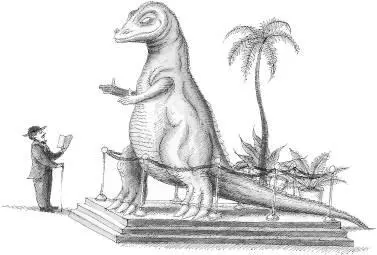
His growing curiosity about the ancient world was not unusual for a man of his time. Heinrich was living in an age when the general public was becoming more knowledgeable about the distant past. “Prehistory” — the study of human beings before the invention of writing — was a new science. All over fashionable Europe, the ancient world had become the latest craze.
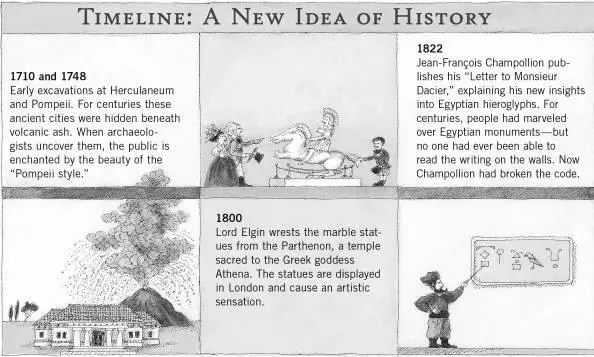
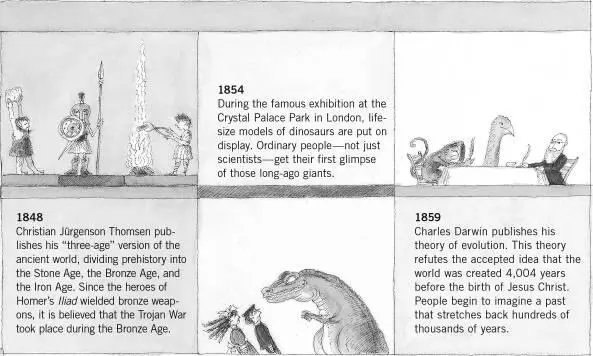
Heinrich was attracted by this new science, though he had not yet decided to become an archaeologist. He felt torn between the worlds of business and scholarship. He enrolled in the French university, the Sorbonne, but took time away from his classes to mount guard over his fortune. When he heard about economic opportunities in the United States, he headed for America. The year was 1867, and the slaves had been freed for four years.
Once in the United States, Heinrich found himself deeply moved by the ambition and intelligence of the former slaves. He wrote that any statements about the laziness of Negro freedmen were “downright falsehoods. . . . They are as willing and eager to work . . . as any workmen I have yet seen and . . . both morally and intellectually, they stand much higher than their former tyrants.” He sympathized with the former slaves’ struggle to create a new and a better life. He had never forgotten what it was to be an underdog.
Heinrich celebrated his forty-sixth birthday alone, in New York City. Though he did not yet realize it, he was about to set off on a heroic quest: a lifelong search for the lost city of Troy.
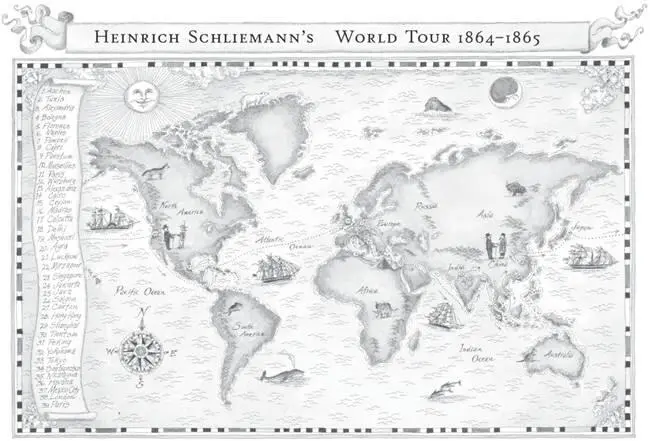
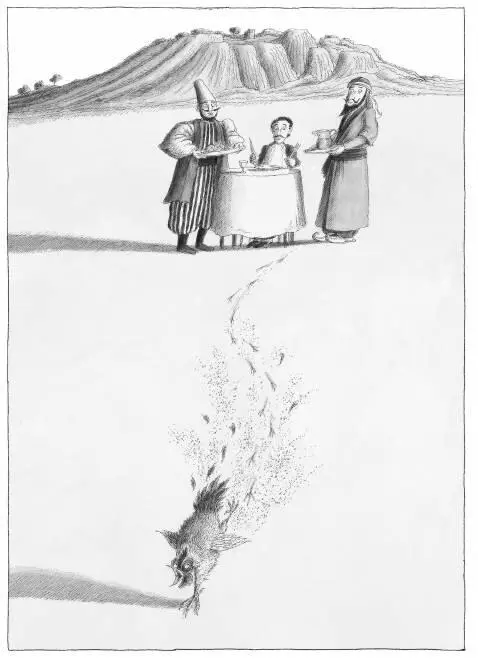

Most modern scholars think that it was not until the age of forty-six that Heinrich Schliemann made up his mind to look for Troy, the lost city of Homer’s Iliad . Before 1868, there is nothing about finding Troy in the thousands of letters and papers written by Heinrich Schliemann. If — as Heinrich maintained later in life — he had dreamed of finding the lost city since he was seven years old, it was a dream he had never shared. It was a dream he had buried as deep as Troy itself.
And it was a peculiar dream. Most of the scholars of Schliemann’s day doubted whether Troy was a real place. Homer’s war poem The Iliad was considered the greatest epic of all time, but it was considered to be fictional, an invented tale. Troy was a place in a story , like Oz or Narnia or Neverland.
Читать дальшеИнтервал:
Закладка:
Похожие книги на «The Hero Schliemann»
Представляем Вашему вниманию похожие книги на «The Hero Schliemann» списком для выбора. Мы отобрали схожую по названию и смыслу литературу в надежде предоставить читателям больше вариантов отыскать новые, интересные, ещё непрочитанные произведения.
Обсуждение, отзывы о книге «The Hero Schliemann» и просто собственные мнения читателей. Оставьте ваши комментарии, напишите, что Вы думаете о произведении, его смысле или главных героях. Укажите что конкретно понравилось, а что нет, и почему Вы так считаете.

